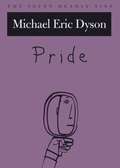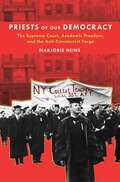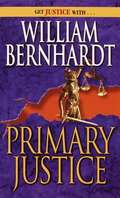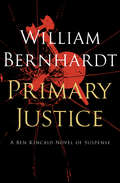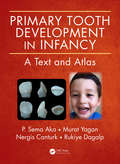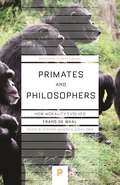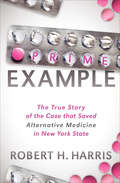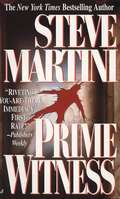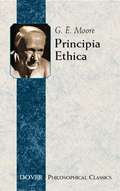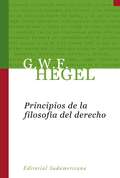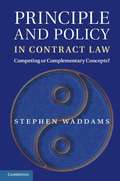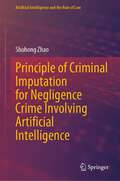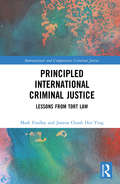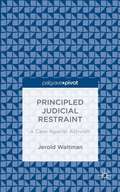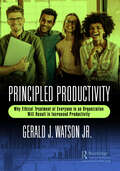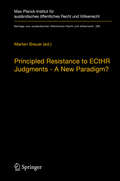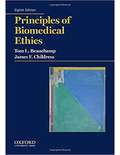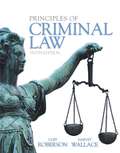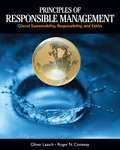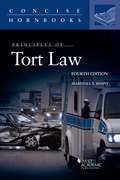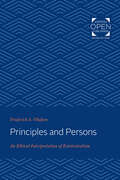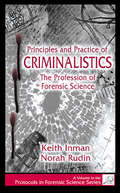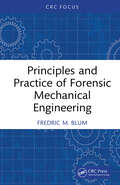- Table View
- List View
Pride: The Seven Deadly Sins
by Michael Eric DysonOf the seven deadly sins, pride is the only one with a virtuous side. It is certainly a good thing to have pride in one's country, in one's community, in oneself. But when taken too far, as Michael Eric Dyson shows in Pride, these virtues become deadly sins. Dyson, named by Ebony magazine as one of the 100 most influential African Americans, here looks at the many dimensions of pride. Ranging from Augustine and Aquinas, MacIntyre and Hauerwas, to Niebuhr and King, Dyson offers a thoughtful, multifaceted look at this "virtuous vice. " He probes the philosophical and theological roots of pride in examining its transformation in Western culture. Dyson discusses how black pride keeps blacks from being degraded and excluded by white pride, which can be invisible, unspoken, but nonetheless very powerful. Dyson also offers a moving glimpse into the teachers and books that shaped his personal pride and vocation. Dyson also looks at less savory aspects of national pride. Since 9/11, he notes, we have had to close ranks. But the collective embrace of all things American, to the exclusion of anything else, has taken the place of a much richer, much more enduring, much more profound version of love of country. This unchecked pride asserts the supremacy of America above all others--elevating our national beliefs above any moral court in the world--and attacking critics of American foreign policy as unpatriotic and even traitorous. Hubris, temerity, arrogance--the unquestioned presumption that one's way of life defines how everyone else should live--pride has many destructive manifestations. In this engaging and energetic volume, Michael Eric Dyson, one of the nation's foremost public intellectuals, illuminates this many-sided human emotion, one that can be an indispensable virtue or a deadly sin.
Priests of Our Democracy: The Supreme Court, Academic Freedom, and the Anti-Communist Purge
by Marjorie HeinsPriests of OurDemocracy tells of the teachers and professors whobattled the anti-communist witch hunt of the 1950s. It traces the political fortunesof academic freedom beginning in the late 19th century, both oncampus and in the courts. Combining political and legal history with wrenchingpersonal stories, the book details how the anti-communist excesses of the 1950sinspired the Supreme Court to recognize the vital role of teachers andprofessors in American democracy. The crushing of dissent in the 1950simpoverished political discourse in ways that are still being felt, and FirstAmendment academic freedom, a product of that period, is in peril today. Incompelling terms, this book shows why the issue should matter to everyone.
Prima Facie: A Novel
by Suzie MillerA Bookriot Best Thriller of 2024“Enthralling and sharp-witted...Highly recommended.”—Karin Slaughter, New York Times and #1 international bestselling author“Bold, fearless...Prima Facie is a deeply rewarding, absolute must read.” —Chris Whitaker, New York Times bestselling author of We Begin at the EndThis is not life, this is law…Tessa Ensler loves her job. She’s worked her way up to being a top criminal defense barrister against all the odds, and fights to defend those pleading not guilty. Tessa believes in the law, believes in the system. Her quick-witted cross-examinations and intelligence in the courtroom see her clocking up win after win - including securing freedom for men accused of rape and sexual assault. Innocence until proven guilty is, after all, the bedrock of a civilized society.But when Tessa is raped by a coworker, she struggles to find the strength to bring him to justice in the face of the barriers and opposition within that same system. Determined to have her day in court, Tessa is forced to confront the stark reality that the law was not written for victims, and that she is the one on trial. She fights on, even as her evidence is manipulated to make her look like a liar, even while she is retraumatized in the stand.Based on the Olivier and Tony Award-winning play, Suzie Miller’s Prima Facie is an unforgettable story of what happens when a victim is asked to navigate a system that is not set up to accommodate the lived experience of sexual assault survivors.
Primary Justice (Ben Kincaid Series #1)
by William BernhardtBen Kincaid wanted to be a lawyer to do the right thing. But when he takes a hot-shot spot in Tulsa's most prestigious law firm, Ben discovers that doing the right thing and representing his clients' interests can be mutually exclusive--in this explosive legal thriller that brings morality and temptation together in one dangerous motion.
Primary Justice: A Novel Of Suspense (The Ben Kincaid Novels #1)
by William BernhardtAfter just a few hours on the job, a new lawyer lands his first murder caseIt's Ben Kincaid's first day as an associate at corporate giant Raven, Tucker & Tubb, and he's ready to start the long climb up the ladder to partnership. But he's barely cleared the first rung when a body trips him up. Ben's first task is to arrange an adoption for one of the firm's biggest clients--a bit of grunt work that becomes interesting when he meets the child in question. Emily suffers from Korsakov's Syndrome, a rare disorder that prevents her from forming memories, and Jonathan and Bertha Adams want nothing more than to raise her as their own. But Kincaid has just begun getting the paperwork together when he gets a chilling phone call: Jonathan has been found dead, hacked to pieces in an alleyway. Investigating the killing will take Kincaid down a fearsome path, leading him to wish that, like Emily, he had the power to forget.
Primary Tooth Development in Infancy: A Text and Atlas
by P. Sema Aka Murat Yagan Nergis Canturk Rukiye DagalpThis color atlas and textbook describes the initial phase of human dentition. It includes more than 1,500 photographs of fetal and infant teeth up to the age of one year. Photographs with concise explanatory text depict steps of these developmental phases. The teeth are photographed from six different aspects: buccal, lingual, mesial, distal, incisal, and from the root direction. A supplementary software program for age estimation from dental measurements can also be used in conjunction with the material in this text.
Primates and Philosophers: How Morality Evolved (Princeton Science Library #43)
by Frans de WaalCan virtuous behavior be explained by nature, and not by human rational choice? "It's the animal in us," we often hear when we've been bad. But why not when we're good? Primates and Philosophers tackles this question by exploring the biological foundations of one of humanity's most valued traits: morality. In this provocative book, renowned primatologist Frans de Waal argues that modern-day evolutionary biology takes far too dim a view of the natural world, emphasizing our "selfish" genes and reinforcing our habit of labeling ethical behavior as humane and the less civilized as animalistic. Seeking the origin of human morality not in evolution but in human culture, science insists that we are moral by choice, not by nature. Citing remarkable evidence based on his extensive research of primate behavior, de Waal attacks "Veneer Theory," which posits morality as a thin overlay on an otherwise nasty nature. He explains how we evolved from a long line of animals that care for the weak and build cooperation with reciprocal transactions. Drawing on Darwin, recent scientific advances, and his extensive research of primate behavior, de Waal demonstrates a strong continuity between human and animal behavior. He probes issues such as anthropomorphism and human responsibilities toward animals. His compelling account of how human morality evolved out of mammalian society will fascinate anyone who has ever wondered about the origins and reach of human goodness. Based on the Tanner Lectures de Waal delivered at Princeton University's Center for Human Values in 2004, Primates and Philosophers includes responses by the philosophers Peter Singer, Christine M. Korsgaard, and Philip Kitcher and the science writer Robert Wright. They press de Waal to clarify the differences between humans and other animals, yielding a lively debate that will fascinate all those who wonder about the origins and reach of human goodness.
Prime Example: The True Story of the Case that Saved Alternative Medicine in New York State
by Robert H. HarrisA riveting account of the little known witch-hunt against the founder of one of the first major integrative medical centers in America. Prime Example tells the story of the State of New York Department of Health versus Warren M. Levin, MD. In the late 1980s, the Commissioner of Health in New York targeted Warren Levin—a board-certified family doctor—in his effort to rid the state of alternative practitioners. Dr. Levin&’s practice had never received a complaint from any patient and he had never been sued on the day that the state served a huge set of charges against him. During the ensuing disciplinary proceedings, the state brought in a witness who had spent much of his time testifying against physicians before many government bodies including the US Congress, where he specifically mentioned Dr. Levin as a quack on several occasions. The Levin defense brought in an extraordinary compliment of witnesses on his behalf. Among them was Linus Pauling, PhD, with almost 50 honorary MDs and PhDs. He was at the time he testified—and remains—the only human being to have received two individual Nobel prizes. There were many others, many of them tops in their fields with hefty titles and accomplishments who testified for Levin and much of that testimony is referred to and/or excerpted in Prime Example. This is the real-life story of a man being persecuted for daring to diverge from mainstream medical practices and of the abuse of power by a health commissioner driven by private and political motives.
Prime Witness (Paul Madriani #2)
by Steve MartiniProsecutor Paul Martini thinks that he has found the murderer of six people, but when no evidence links the suspect to the last two slayings, Paul realizes that another brutal killer is still free.
Principia Ethica
by G. E. MooreFirst published in 1903, this volume revolutionized philosophy and forever altered the direction of ethical studies. It clarifies some of moral philosophy's most common confusions and redefines the science's terminology. 6 chapters explore: the subject matter of ethics, naturalistic ethics, hedonism, metaphysical ethics, ethics in relation to conduct, and the ideal.
Principios de la filosofía del derecho (Perspectivas Ser.)
by Georg Wilhelm HegelEsta es la primera versión en español de la última obra editada porHegel. Muestra los conceptos fundamentales de la filosofía y señala sulugar de encuentro definitivo con la teoría social. «La filosofía del Derecho» presenta la estructura conceptual de lasociedad burguesa y da, al mismo tiempo, el viraje metódico que permitesu superación. A partir de esta obra y en discusión con ella surge larevisión de toda la tradición filosófica y política, llevada a caboentre otros por Marx y por la crítica social contemporánea.Las cuestiones que plantean son de tipo metodológico, epistemológico yaxiológico. En el tratamiento de todas ellas, esta disciplina ofrece unareflexión crítica sobre el Derecho, desde su triple dimensión: comonorma, como hecho y como valor.
Principle and Policy in Contract Law
by Stephen WaddamsAlthough presented as being derived from the past, principles in contract law have been subject to constant reformulation, thereby facilitating legal change while simultaneously seeming to preclude it. Principle and policy have been mutually interdependent, propositions not usually being called principles unless they have been perceived to lead to just results in particular cases, and as likely to produce results in future cases that accord with common sense, commercial convenience and sound public policy. The influence of policy has been frequent in contract law, but Stephen Waddams argues that an unmediated appeal to non-legal sources of policy has been constrained by the need to formulate generalised propositions recognised as legal principles. This interrelation of principle and policy has played an important role in enabling an uncodified system to hold a middle course between a rigid formalism on the one hand and an unconstrained instrumentalism on the other.
Principle of Criminal Imputation for Negligence Crime Involving Artificial Intelligence (Artificial Intelligence and the Rule of Law)
by Shuhong ZhaoThis book provides an in-depth discussion of the theoretical and practical issues of criminal imputation for negligence crime involving artificial intelligence. Accordingly, this study combines the imputation challenges brought about by AI with traditional criminal imputation theory and analyses imputation for negligence crime involving AI from three aspects: the basic principles, structure, and results of imputation for negligence crime involving AI. The traditional theory of imputation is discussed in detail. The readership is a group of people interested in this topic, including, in particular, interested laymen, undergraduate students and postgraduate researchers. The highlights of this book are it identifies the imputation challenges bought about by AI, reveals the theoretical and practical gap in the criminal imputation of negligent crimes involving AI, and provides an in-depth and creative ideas of criminal imputation for the negligent crimes involving AI.
Principled International Criminal Justice: Lessons from Tort Law (International and Comparative Criminal Justice)
by Mark Findlay Joanna Chuah Hui YingCommencing its search for a principled international criminal justice, this book argues that the Preamble to the Rome Statute requires a very different notion of justice than that which would be expected in domestic jurisdictions. This thinking necessitates theorising what international criminal justice requires in terms of its legitimacy much more than normative invocations, which in their unreality can endanger the satisfaction of two central concerns – the punitive and the harm-minimisation dimensions. The authors suggest that because of the unique nature and form of the four global crimes, pre-existing proof technologies are failing prosecutors and judges, forcing the development of an often unsustainable line of judicial reasoning. The empirical focus of the book is to look at JCE (joint criminal enterprise) and aiding and abetting as case-studies in the distortion of proof tests. The substantial harm focus of ICJ (international criminal justice) invites applying compatible proof technologies from tort (causation, aggregation, and participation). The book concludes by examining recent developments in corporate criminal liability and criminalising associations, radically asserting that even in harmonising/hybridising international criminal law there resides a new and rational vision for the juridical project of international criminal justice.
Principled Judicial Restraint: A Case Against Activism
by Jerold WaltmanLike many books, this one argues for a more restrained Supreme Court. Unlike most other books, however, this one grounds that call in a fully elaborated constitutional theory that goes beyond the "counter-majoritarian difficulty. "
Principled Negotiation and Mediation in the International Arena
by Paul J. ZwierThis book argues that it can be beneficial for the United States to talk with 'evil' – terrorists and other bad actors – if it engages a mediator who shares the United States' principles yet is pragmatic. It shows how the US can make better foreign policy decisions and demonstrate its integrity for promoting democracy and human rights, by employing a mediator who facilitates disputes between international actors by moving them along a continuum of principles, as political parties act for a country's citizens. This is the first book to integrate theories of rule of law development with conflict resolution methods, and it examines ongoing disputes in the Middle East, North Korea, South America and Africa. It draws on the author's experiences with The Carter Center and judicial and legal advocacy training to provide a sophisticated understanding of the current situation in these countries and of how a strategy of principled pragmatism will give better direction to US foreign policy abroad.
Principled Productivity: Why Ethical Treatment of Everyone in an Organization Will Result in Increased Productivity
by Gerald J. Watson Jr.This book demonstrates that ethical treatment of everyone in an organization: 1. Will increase productivity in all the functional activities of the organization as well as its members. 2. Will ensure the growth of the organization as a result of continuous improvements that may have been initiated by management but will be continuously improved by motivated employees. It achieves this by: 1. The presentation of examples from personal experience and a review of the literature. 2. Providing a list of critical questions for each function whose correct solutions will provide a metric that enables and establishes obtainable goals for improvement. This book is unique because it requires the decision-maker to examine each potential decision and ask the questions: 1. Do alternative methods exist that will achieve the desired goals, which will minimize the long-term adverse effects on affected employees and the future viability of the organization? 2. When is the appropriate time to implement this decision? 3. What is the best way to implement this decision? The decision may involve a reduction in force (RIF), a potential change in a vendor or a manufacturing process, the formation of a safety team, and/or the installation or modification of an incentive system. The decisions could be involved in manufacturing, logistics, quality, or healthcare. This work will benefit everyone in leadership positions in all branches of government, manufacturing, logistics, human relations, and healthcare, especially those working with frontline employees, staff, and customers.
Principled Resistance to ECtHR Judgments - A New Paradigm? (Beiträge zum ausländischen öffentlichen Recht und Völkerrecht #285)
by Marten BreuerThe book analyses the position of the ECtHR which has been more and more confronted with criticism coming from the national sphere, including the judiciary. This culminated in constitutional court judgments declaring a particular ECtHR judgment non-executable, for reasons of constitutional law. Existing scholarship does not differentiate enough between cases of mere political unwillingness to execute an ECtHR judgment and cases where execution is blocked for legal reasons (mainly of constitutional law nature). At the same time, the discussion under EU law on national/constitutional identity limiting the reach of the former has been only loosely linked with the ECHR context. This book presents a new dogmatic concept - 'principled resistance' - to analyse such cases. Taking up examples from the national level, it strives to find out whether the legal reasoning behind 'principled resistance' shows enough commonalities in order to qualify such incidents as expression of a 'new paradigm'.
Principles Of Biomedical Ethics
by Tom L. Beauchamp James F. ChildressPrinciples of Biomedical Ethics provides a highly original, practical, and insightful guide to morality in the health professions. Acclaimed authors Tom L. Beauchamp and James F. Childress thoroughly develop and advocate for four principles that lie at the core of moral reasoning in healthcare: respect for autonomy, nonmaleficence, beneficence, and justice. Drawing from contemporary research--and integrating detailed case studies and vivid real-life examples and scenarios--they demonstrate how these prima facie principles can be expanded to apply to various conflicts and dilemmas, from how to deliver bad news to whether or not to withhold or withdraw life-sustaining treatments. <p><p> Ideal for courses in biomedical ethics, bioethics, and health care ethics, the text is enhanced by hundreds of annotated citations and a substantial introduction that clarifies key terms and concepts.
Principles Of Criminal Law
by Cliff Roberson Harvey WallaceA concise yet comprehensive overview of criminal law, the Sixth Editionof Principles of Criminal Law is an engaging narrative text ideal for a one-semester course. Rather than focusing on dense citations and lengthy discussions, this text has a clear, accessible tone that will help students grasp the material quickly. Covering a variety of topics, such as white-collar crime, victimless crime, and political crime, as well as major offenses like homicide and sexual assault, chapters focus on real-world applications and include short edited cases, focus boxes, and end-of-chapter practicums. This edition includes updated information on changing marijuana laws, “Stand-Your-Ground” laws, terrorism, and more.
Principles Of Responsible Management: Glocal Sustainability, Responsibility, And Ethics
by Oliver Laasch Roger ConawayPRINCIPLES OF RESPONSIBLE MANAGEMENT offers an international, scientifically sound, and strictly practice-related perspective. It is the first official textbook of the United Nations for the Principles for Responsible Management Education (PRME) academic network, and a reference book for companies of the United Nations Global Compact Initiative. It is a primary text for traditional business and society, business ethics, corporate social responsibility, and sustainability courses, or may serve as a practitioner handbook. Contributors are renowned academic professionals in their respective chapter topics as well as distinguished business practitioners who contribute highly relevant practice cases.
Principles Of Tort Law
by Marshall ShapoPresenting the law of tort as a body of principles, this authoritative textbook leads students to an incisive and clear understanding of the subject. Each tort is carefully structured and examined within a consistent analytical framework that guides students through its preconditions, elements, defences and remedies. Clear summaries and comparisons accompany the detailed exposition, and further support is provided by numerous diagrams and tables, which clarify complex aspects of the law. Critical discussion of legal judgments encourages students to develop strong analytical and case-reading skills, whilst key reform proposals and leading cases from other jurisdictions illustrate different potential solutions to conundrums in tort law. A rich companion website, featuring ten additional chapters and sections on more advanced areas of tort law, completes the learning package. Written specifically for students, the text is also ideal for practitioners, litigants, policymakers and law reformers seeking a comprehensive and accurate understanding of the law.
Principles and Persons: An Ethical Interpretation of Existentialism
by Frederick OlafsonOriginally published in 1967. Many critics have claimed that existentialism has not produced any ethics, as distinct from the moralistic assertions of its individual proponents. Challenging this view, Professor Olafson demonstrates that Sartre, Heidegger, and Merleau-Ponty indeed worked out a powerful ethical theory and that their positions must be understood as deriving from a voluntarist concept of moral autonomy that can be traced beyond Nietzsche and Kant to certain tendencies in late-medieval thought. He demonstrates that a broad parallelism exists between developments in ethical theory among Continental philosophers of the phenomenological persuasion and the more analytically inclined philosophers of the English-speaking world.
Principles and Practice of Criminalistics: The Profession of Forensic Science (Protocols in Forensic Science)
by Keith Inman Norah RudinExpanding on ideas proposed by leading thinkers throughout the history of forensic science, Principles and Practice of Criminalistics: The Profession of Forensic Science outlines a logical framework for the examination of physical evidence in a criminalistics laboratory. The book reexamines prevailing criminalistics concepts in light of both techni
Principles and Practice of Forensic Mechanical Engineering
by Fredric M. BlumPrinciples and Practice of Forensic Mechanical Engineering explains the physical processes and causes of failures that result in physical or bodily damage. It discusses the nature of defects and defines the three types – design defects, manufacturing defects and service defects – with supporting examples of each.Drawing on the author’s decades of experience, the book advises mechanical engineers how to investigate the cause of an incident, evaluate responsibility and prepare a report of the results. Rather than focusing solely on theoretical aspects of physics or chemistry, readers will learn how physical and chemical principles can be applied to solve real-world cases. Through numerous examples, the book emphasizes the need for not only technical knowledge but also thinking outside the box to resolve challenging cases.This book supplies essential knowledge about forensic procedures to help mechanical engineers become involved in and efficiently practice forensics.
